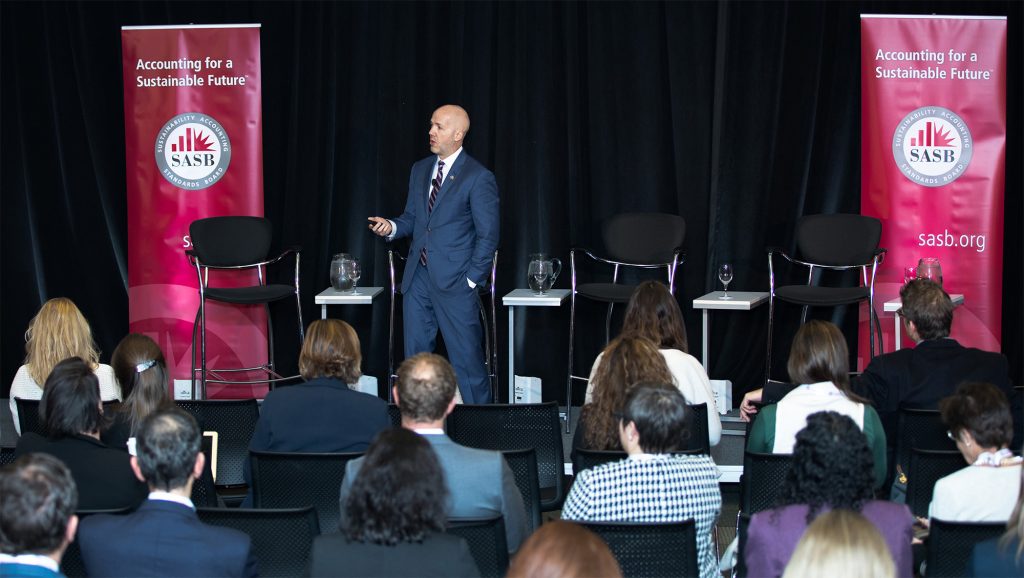The Sustainability Accounting Standards Board: Financial Impacts of Sustainability – Connecting Businesses and Investors
Sustainability issues are global business issues. For example, data security—a social issue—is important to companies in the software industry. Water management—an environmental issue—is essential to a beverage producer. Managing conflicts of interest—a governance issue—is critical for an investment bank. Effectively managing these issues over the long-term is likely to improve companies’ financial performance. Because of this, investors want comparable data on how companies are managing business-critical sustainability issues. Just as financial accounting standards provide a common language for companies and investors to talk about financial performance, the markets need a common language for companies and investors to talk about sustainability performance.

Jeff Hales: SASB Standards Board Chair. Photo: Reese Nanavati
The Sustainability Accounting Standards Board (SASB) fills this need by connecting businesses and investors on the financial impacts of sustainability. SASB Standards—which are available for 77 industries—identify the subset of environmental, social, and governance issues most relevant to financial performance in each industry. Companies around the world use SASB Standards to identify, manage, and communicate financially material sustainability information to investors. SASB Standards are designed to be cost-effective for companies—on average, each standard has six disclosure topics and 13 accounting metrics. The Standards help investors access sustainability data that is comparable, consistent, and reliable. SASB’s rigorous and transparent standard-setting process includes evidence-based research, broad and balanced participation from companies, investors, and subject matter experts, and oversight and approval from an independent Standards Board.
Standards are an important tool because improved transparency leads to improved performance. When companies use SASB Standards to disclose comparable sustainability data, investors can clearly compare companies on their sustainability performance and can allocate capital to the best performers. Companies can benchmark their performance against peers and work to improve their sustainability performance to increase shareholder value. This creates a “race to the top” on improved environmental and social outcomes, ultimately making the capital markets a powerful lever of change for a more sustainable and just world.
The Sustainability Accounting Standards Board, led by CEO Janine Guillot, is a nonprofit organisation. The SASB Foundation Board of Directors oversees the strategy, finances, and operations of the entire organisation, and appoints the members of the SASB Standards Board. The SASB Standards Board is an independent board that is accountable for the due process, outcomes, and ratification of the SASB Standards. The SASB Foundation’s funding model includes three pillars of support: earned income, contributions from market participants, and philanthropy.
To download any of the 77 industry-specific standards, or learn more about SASB, please visit SASB.org.
You may have an interest in also reading…
Co-op Legal Services: Opportunity and Optimism Abound in the Exciting Legal Services Sector
Co-op Legal Services, which is part of the Co-op Group, offers legal advice and services for estate planning, probate, family,
Crescat Capital: Navigating the Boom Bust Cycle
Kevin Smith, Crescat Capital founder and chief investment officer, has managed money through the tech bubble, dotcom bust, housing bubble,
Deutsche Oppenheim Family Office AG: Diversification During Financial Crisis Showing Dividends for Family Office
No investor could have foreseen the Covid-19 pandemic. Natural disasters are unpredictable events, and uncertainty is one reason for the
















































































